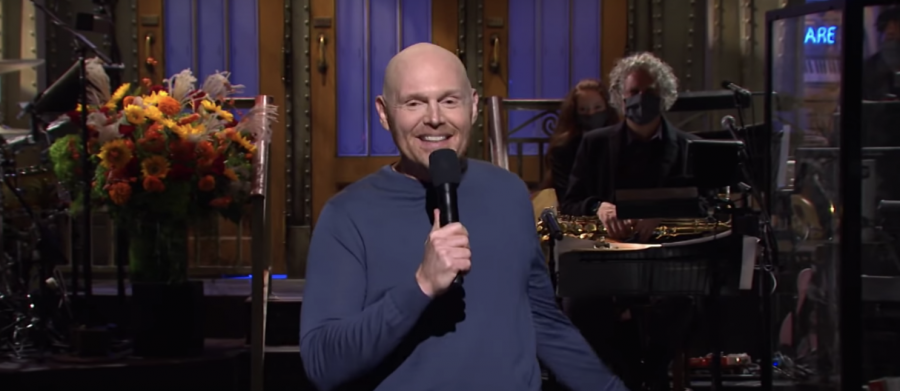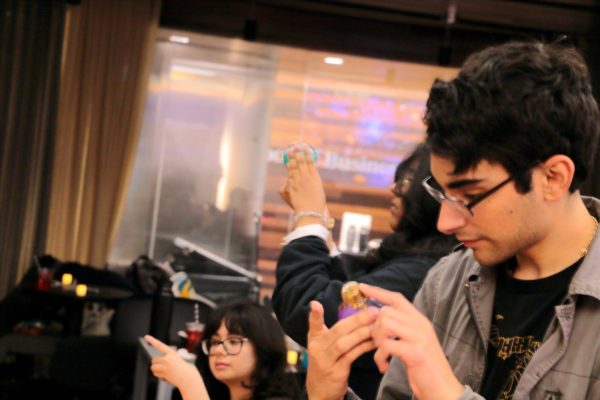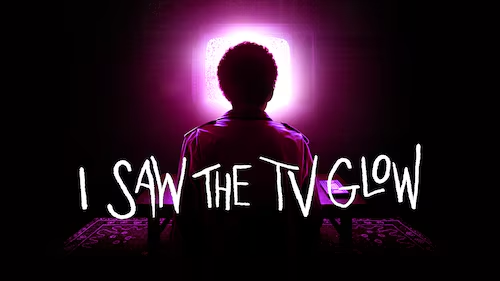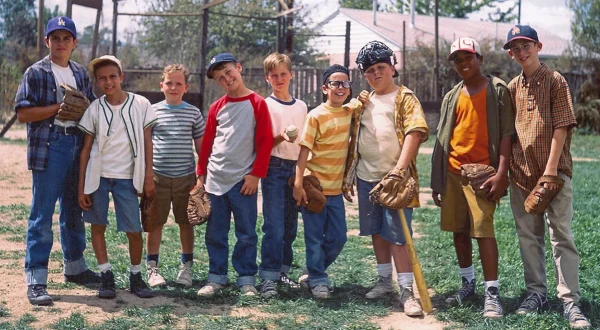Defining bigotry in satire: Bill Burr’s monologue
Veteran stand-up comedian Bill Burr took to the stage at Studio 8H on Oct. 10. In what was his first appearance hosting Saturday Night Live, Burr’s performance divided audience opinion and raised important questions about what is and isn’t acceptable satire in our evolving social landscape.
The primary source of the weekend controversy was Burr’s opening stand-up monologue. The seven-minute comedy set featured scathing commentary on the activism of white feminists and the LGBTQIA+ community and how it has impacted African Americans.
Burr’s primary criticism was the attention white women and gay people draw in the public discourse distracts from the fact that African Americans are systemically kept at the bottom of the United States’ social ladder. Basically, his belief that there’s a lack of understanding about what oppression is and he’s tired of loud complaints coming from certain groups.
Some of his harshest comments on white women included his assertions that they co-opted the woke movement to advance themselves, they rolled around with white men in “blood money” for centuries and that they shouldn’t compare their experiences to the struggles of African Americans from the comfort of their “new SUV with heated seats.”
His material about the LGBTQIA+ community was perhaps less personal, but problematic nonetheless. Burr’s jokes centered around pride month — his stance being that it’s absurd that gay people get the warm and pleasant month of June to celebrate while Black History month has been relegated to the short and comparatively miserable February.
There was a particularly distasteful comment about gay people never being enslaved. Despite perhaps being technically correct, the statement was of course egregious considering the historical violence LGBTQIA+ individuals have endured. Hate crimes continue to be a problem, with 2020 being an awful year for violence against transgender women in the U.S.
To a general audience much of this material was shocking to see, but those familiar with Burr’s work know that he’s no stranger to controversy.
Burr has skyrocketed in popularity in recent years due to his prolific podcast work, acclaimed Netflix stand-up specials, work writing and producing his own animated Netflix series and his various acting roles.
He’s made a name for himself with brash comedy that often showcases his willingness to challenge what he perceives as hypocrisy in liberal politics. This stage persona has been incredibly successful, leading to multiple sellout comedy tours across North America and abroad in Europe and Australia.
So with a comedian like Burr, the question becomes — where is the tipping point in which edgy social commentary becomes problematic? Well, it’s hard to say.
On the surface level, it’s a matter of a taste. Burr’s delivery is crass and colorful. He’s very much an adult comedian, profanity is a trademark of his performances. The shock that his routines evoke is by design. He challenges audiences, his desired effect is some level of discomfort.
If you’re not interested in a middle aged white guy howling expletives for the duration of his set, then Burr probably isn’t for you. But does discomfort with his delivery necessarily invalidate messages he inserts into his routines? Well, with an examination of his messages things get more complicated.
For instance, Burr’s remarks Saturday about white feminists certainly had truths laced within them. People like Rachel Dolezal and Jessica Krug exist, the phenomenon of white women occupying black spaces for their benefit isn’t some fantasy.
Furthermore, the notion that white women have historically upheld the patriarchy and tenants of white supremacy is also accurate. The issue persists to this day, in the last presidential election the majority of white women who voted cast their ballot for Donald Trump. But that’s not to say that Burr’s take here doesn’t require some nuance.
I’m sure scholars on the topic would mention the fact that white women didn’t invent the patriarchy, that men did. I’m sure they’d also mention the fact that for much of history women were basically property and in no position to fight for social justice.
But, the thing is — comedians are not scholars. Jokes are not dissertations. Performance art is entertainment. How fair is it to expect stage performers to perfectly flesh out the intricacies of our society in their work?
So, what makes a joke objectively offensive and unacceptable in the public discourse?
Well, in a lot of ways we’ve already decided those metrics. It wasn’t that long ago that comedy blockbusters like “The Hangover” were riddled with homophobic slurs. Over the last decade there has been progress. The expansion of social media led to increased diversity of voices in our discourse — public opinion swayed in favor of disenfranchised communities.
Jokes where the sole punchline is someone’s race or gender or sexual orientation are out. This is a good thing. We want decency in our society.
As we move forward and our views continue evolving, there will be a balancing act with our standards for satire. Audiences want effective social commentary, yet effective social commentary does not go hand and hand with comfort.
The whole point is to disrupt patterns in the public discourse. Comedians like Burr achieve this disruption. Despite how offensive his work can be, I hope people are willing to engage it and recognize when there are valid points being made.
If the problems weren’t real they wouldn’t be appearing in someone like Burr’s routine. We won’t be better off insulating ourselves away from topics we’re not comfortable discussing. We won’t get where we’re trying to go if we’re not willing to continue having the hard conversations.










Anti-hypocrite • Feb 2, 2022 at 9:36 AM
“we want decency in our society” but we still ignore the multiple “trans” men who were less than in their sport so they changed over and are now destroying women at theirs. You tell me, is this decency?
No Thank You • Oct 28, 2021 at 3:07 PM
A year later and that same monologue on YouTube has gotten 256k likes and 9.6k dislikes. Doh! Sounds like most of society disagrees with the snowflakes!
Kelly • Apr 4, 2021 at 8:49 AM
As a white woman who was hit kicked punched chased with knives 250 to 500 times growing up in rural Wisconsin, finding out years later that my uncles raped my aunts and even went after some of my female cousins, what Bill Burr doesn’t understand is that feminists are not fighting for the superficial. They are fighting for the survival of women. All of the men in my family got away with their gender based violence. My uncle is living his best life after molesting 4 year old girls. MEN ARE PROTECTED. Rapists are protected. 3 to 4 US women a day are murdered by their husbands. It barely makes the news. We are abused and then silenced. It is rare I meet any woman who has not experienced sexual assault or some other form of gender based violence. But when we talk we are traitors to our families or even our cultures. No justice no silence is how I’m beginning to feel. I went into quarantine last year feeling like the only upside of the pandemic was that I got to take a break from the fear that my brother might find me and murder me. Gratefully, last April I found out from a Facebook post that he had died. I feel a sense of freedom I haven’t felt since he held me hostage and my family sided with him. I know it’s worse for women of color. I gave money to George Floyd’s and Ahmoud’s families and support Black Lives Matter. But in a world where Colin Kaepernick proudly endorsed Beats by Dre, a man who beat Dee Barnes and Michel’le I ask myself, Do even honorable men understand the impact of gender based violence upon the lives and souls of their victims? I really like Bill Burr’s comedy. And I do think he makes really good points about white women benefitting from and even piling onto white supremacy. But the argument that in a country where 250,000 women a year are raped with almost no legal remedies. In a country where 15000 to 50,000 girls are currently sex trafficked. In a pandemic which has seen an increase in violence against women, I have to ask myself – is the male supremacy that abuses us and leaves us, sometimes for dead, then demands our silence working overtime so men like Bill Burr just can’t see? I do think Bill Burr is funny. But he’s so ignorant of the reality of violence against women that he thinks that feminists are fighting for silly, superficial things. He doesn’t realize we are fighting, with all kinds of push back by men and even our female anti allies (some of whom are the most abused of all), for a woman’s right to exist without the constant threat of gender based violence.
Pijoho • Jan 27, 2021 at 1:08 AM
Had Bill Burr been anything other than a WHITE MAN saying these things, it might’ve been easier to swallow. But listening to a white guy representative of all oppression for all groups including white women in the US is RICH. Unbelievable balls. Perhaps look in the mirror before casting stones. He complains about alimony women are paid, calls them gold diggers. Clearly issues with women and a lot of anger to get out. So let’s do what we Americans do and definitely pay and reward him for it. Ugh.
Megan • Nov 1, 2020 at 12:00 PM
It was a monologue of a comedy show where people make jokes and other people laugh. If you’re offended by what he said than you’re the joke. Now you’re trying to dissect the 7 minutes into acting as a victim exactly what this monologue is about.
Michael • Oct 29, 2020 at 4:44 AM
You’re overthinking this. The litmus test is whether, in the moment, you laughed. I did.
Sam • Oct 23, 2020 at 7:04 PM
Just wanted to say I wholeheartedly agree Daniel, and was a well written and insightful post. Also, Thanks Oakland Post for allowing comments still, as this has become a sudden rarity.
Reynolds Eaton • Oct 23, 2020 at 2:21 AM
I think if one is going to do a routine like this, it has to be smarter and contain more depth than what Burr offered. And more self-deprecating or at least self-aware. I wasn’t personally offended by anything he said, but I’m also not gay or a woman either and can see how others would be. My main gripe is that it wasn’t all that funny, it was just noisy commentary coming from a white guy’s perspective. This is America, so he can say what he wants and people can watch it if they want, but it just reminded me of where we are now. This, for the next few months at least, is Donald Trump’s America, and the most fashionable thing to do is, don’t mock yourself or the primary role your brethren (heterosexual white men) have played in fucking everything up for centuries, but gratuitously piss on the women and the gays. This felt like something from 1995, honestly. But then again, so does everything from the current era. Even our comedy reflects the errant choice we made back in 2016.
James • Oct 22, 2020 at 11:03 AM
SNL has been hyper-woke since the beginning. So much so, they alienated 1/2 of their audience. Bill Burr is one of the best comedians out there and people can’t even sit back and enjoy a joke without being offended.
Daniel • Oct 21, 2020 at 11:29 PM
Here is the definition of the bigotry in Bill Burr’s monologue — none — you’re trying to dissect a comedy monologue as if it was a persuasive thesis. I’m going to bounce around different thoughts for a bit.
If this monologue was bigotry, then that word no longer has meaning. Does anything in Burr’s monologue imply that any identity group is inferior to his own or any other? Was there any hate or passing judgment towards any identity or minority group based simply on them being a member of that group?
Tolerance and inclusion don’t necessitate walking on eggshells. The problem with conservative white men is that they can’t make fun of themselves and their beliefs. The problem with the very-progressive is that they can’t make fun of themselves and their beliefs.
And the bit was clearly from a progressive point of view, but tolerance of criticism has become completely binary: We’re all comfortable with calling white men the scum of the earth in every way possible whether in comedy or reality (this is not a criticism), but nobody else is fair game for even a fraction of the critique or poking fun? One side is freely open to unlimited bashing, the other is protected from any implication besides eternal innocent victimhood.
To be clear, my only disagreement is with the latter. There’s no true equality and acceptance until everybody’s comfortable with making fun of everybody else… in the right taste and context.
And Burr was in that right taste and context because everybody was made fun of, nobody was implied as inferior to anybody else based on their identity/orientation. The mere suggestion that one group may have historically worse than others does not itself imply prejudice or inferiority
You wouldn’t actually disagree with with his suggestion that black people have historically had it tougher than white women or those of gender or sexual minorities, would you? I think that’d be a tough argument to make. And true or not, it shouldn’t hurt anybody to hear, unless they’re taking too much pride in their specific rung on the victimhood ladder. Burr is married to a black woman, of course he’s going to be a bit more sympathetic to their issues in particular.
Also, if you accept a claim as “technically correct,” how can it be egregious? If I was to say that bison have had it worse from humans than whales, it doesn’t necessarily apply ignorance towards the plight that whales have faced. I might be wrong, it’d be an opinion based on available information, not an attack on whales. For a belief to come from bigotry/prejudice, doesn’t it have to be inaccurate, or at the very least uncertain, by definition?
To me, a theme of the monologue was daring people to make a mountain out of a molehill, and articles like these went right along for ride.